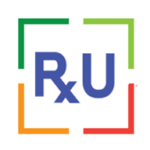Clinical Research Training Programs
Features | Clinical Research Training Program | Clinical Research Fast-Track Program |
Link to Enroll | ||
Course Features | Live Sessions + Hands-on Research Experience + One-on-One Mentorship + Certification (Duration: 6 Months) | Live Sessions + Hands-on Research Experience + Certification (Duration: 6 Months) |
Price | $4500 | $1500 |
US Inpatient Hospital Rotations at a Lower Price | Additional optional cost for 4–12 weeks of hospital rotations | Additional optional cost for 4–12 weeks of hospital rotations |
Start Date | Rolling Admissions | Rolling Admissions |
Special Interest Groups (SIGs) | Internal Medicine Neurology | Internal Medicine Neurology |
Post-Enrollment Strategy Planning | ||
Educational & Skill Learning Sessions | 6 months (Live: 50 hours) | 3 months |
Hands-on Sessions | 6-12 months | 3 months |
Project-specific Research Experience | 6-12 months | 3 months |
1 Observational Study + + 1 Literature Review + 3 National Conference Abstract Presentations | 1 Observational Study + | |
Manuscript Support | 3 Articles | 1 Article |
Peer-reviewed National Conference Abstract Support | 3 Abstracts | 1 Abstract |
Extra Projects Mentorship | Opportunity to Participate in many projects | |
Opportunity to accompany and network in National Conferences with our team of Residents and Attending Physicians |
| |
Statistical Analytic |
| Limited to SPSS & Mendeley |
Google Classroom & Recorded Sessions Access |
|
|
Live Sessions (8 hours) | Live Sessions (8 hours) | |
Research-related Interview Preparation | Live Sessions | Live Sessions |
“Annual Research Day” Presentation |
|
|
Certification |
| |
6 months | ||
- Fellowship | ||
Previous Projects | ||
National Conference Presentations | ||
Testimonials | ||
Similar Program |
* The allotted project will be completed within 3-4 months of the beginning of the project and will be published within 6 months of submission which depends on conference dates and the speed of journals to process the submission.
** CV and Residency-Fellowship Application cover different sections like Higher Education, Work Experience, Conferences, Publications, Certification, Memberships, and Achievements.
*** The Program is designed in a unique way in which, while doing CRTP, you will (1) get the opportunity to work with the US attending physician of your speciality and interest, (2) get closely evaluated by attending, while designing and executing projects and work as a “Remote research assistant”, (3) continue working with the team even after finishing program to create long-term mentorship, (4) get every help possible from attending in sharpening your research related skills to tailor your residency/fellowship path to achieve surest success, and (5) Letter of recommendation (Duration: 6 months) will be provided on hospital letterhead from speciality-specific US Attending Physician based on evaluation from research mentorship.
Note: We will provide educational training, but for you to complete the program, you need to choose the specialty, topic, and mentors, and execute your work independently, as Research Update will not take responsibility for the publication or outcomes of results as a part of the publication process.
